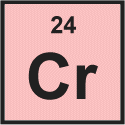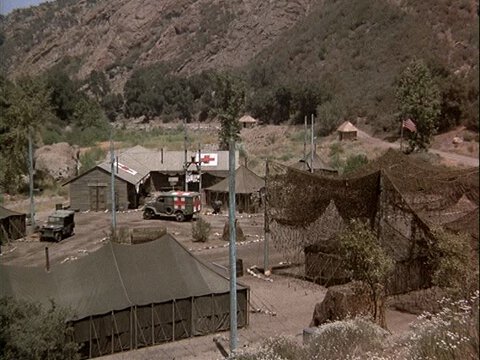I may have mentioned that one of my goals is to
increase my writing output, increase my publication rate, and increase the
relevance of my writing. In my WRITING ADVICE column, I had started using an
article my sister sent me by Lisa Cron. She has
worked as a literary agent, TV producer, and story consultant for Warner Brothers,
the William Morris Agency, and others. She is a frequent speaker at writers’ conferences,
and a story coach for writers, educators, and journalists. I am going to fuse
the advice from her book WIRED FOR STORY with my recent trip to South Korea. Why? I made a discovery there. You’ll hear
more about it in the future as I work to integrate what I’m learning from the
book, the startling things I found in South Korea, and try and alter how I write
in order to create characters that people will care about, characters that will
speak the Truth, and characters that will clearly illustrate what I’m writing
about.
“Remember when Luke has to drop the bomb into
the small vent on the Death Star? The story writer faces a similar challenge of
penetrating the brain of the reader. This book gives the blueprints.” – David
Eagleman
Oddly enough, I’m
writing this as my son, daughter-in-law, and grandchildren are preparing to leave South Korea. They’ll stop
off here for a month or two, then move to their new permanent home on the East Coast.
They’ll be back on the same continent finally and we couldn’t be happier!
So, without
further ado advice from Lisa Cron and how it tangles with South Korea: The reader expects the protagonist will have
a longstanding misbelief that has kept her from easily achieving that goal.
“Aha! This is what
the story is actually about, to wit: How the plot forces the protagonist to
recognize, reevaluate — and hopefully — overcome the longstanding misbelief
that has long kept her from achieving her goal. It’s this inner change that, as
readers, we’re innately tracking from the first page forward.
“To be very clear,
we’re talking about a misbelief about human nature, rather than something
factual. It’s not: ‘I thought the world was flat, and guess what, it’s round!’
Rather it’s: ‘I thought that no one could ever love the “real me,” but I’ve
discovered that that’s exactly what makes me loveable!’
I suppose the…well,
not shock…most startling thing I experienced while I was in South Korea was that
the country’s attitude is entirely different than the one we have here in the
US.
Oh, I’m not
talking politically – Korean politics are FASCINATINGLY complex, especially
when you factor in the South’s democratically elected government, and government
by divine appointment in the North (for a fascinating explanation of WHY the
Kim family has ruled for three generations and why that won’t be changing any
time soon, you need to understand “juche” – https://s3.amazonaws.com/berkley-center/030101LeePoliticalPhilosophyJuche.pdf)
Please remember,
that while the USA has a total (including the initial multiple colonial
incursions) history that’s barely half a millennia, Korea has almost FIVE
MILLENIA of history as an advanced, literate people.
Never thought of
that? Neither did I.
After decades of
watching the TV show, M*A*S*H (which I still love!), my impression of what the
place they were at – Uijeongbu, South Korea was, looked like is this:
https://www.mash4077tv.com/images/features/camp_henry_home.jpg
The FACT of the
matter is that this is Uijeongbu
today:
https://upload.wikimedia.org/wikipedia/commons/thumb/3/32/U_Line_Train.jpg/1024px-U_Line_Train.jpg
Further, the
Koreans were exploring the stars long before Americans were. Cheomseongdae was constructed in the mid-600’s AD. (Europe,
well, let’s just say that Stonehenge (as we see the ruins today), the keystone
of European pride when it comes to astronomy, while it was laid out about the
same time the Koreans were unifying their peninsula, didn’t lead to much in the
way of astronomy and the religion that spawned it, practically speaking, was
gone by the time the ruins were rediscovered) I was here; I took the picture:
But for some reason,
mostly because I’d never thought about it, I didn’t realize that South Korea
today is on par – and more advanced than – we are here. This is one of three radio telescopes (this is the one on Jeju Island, I took this picture as well) of the Korean Very Long Baseline Interferometry Network:
https://scontent.ffcm1-1.fna.fbcdn.net/v/t1.0-9/38734786_10155220047726324_6386585295063613440_n.jpg?_nc_cat=110&_nc_ht=scontent.ffcm1-1.fna&oh=498274ef7841f904692af51bbbbbd99f&oe=5D5341DB
So, how does this
all tie into expectations motivating a main character?
A story I sent out
recently for consideration, is an incident that takes place a few years from “now”
and involves the sparking of a new space race, not by some warrish super power,
but by the technologically advanced Koreans. It’s the opening bid in a story
series I’m thinking about – all because my long-standing misbelief, which I
will transfer to a main character once I start writing, stood very MUCH in the
way of seeing the world the way it really is…
UPDATE: I sold "Komsahamnida, America" to ANALOG SF! I'll let you know when to expect it.
UPDATE: I sold "Komsahamnida, America" to ANALOG SF! I'll let you know when to expect it.






No comments:
Post a Comment